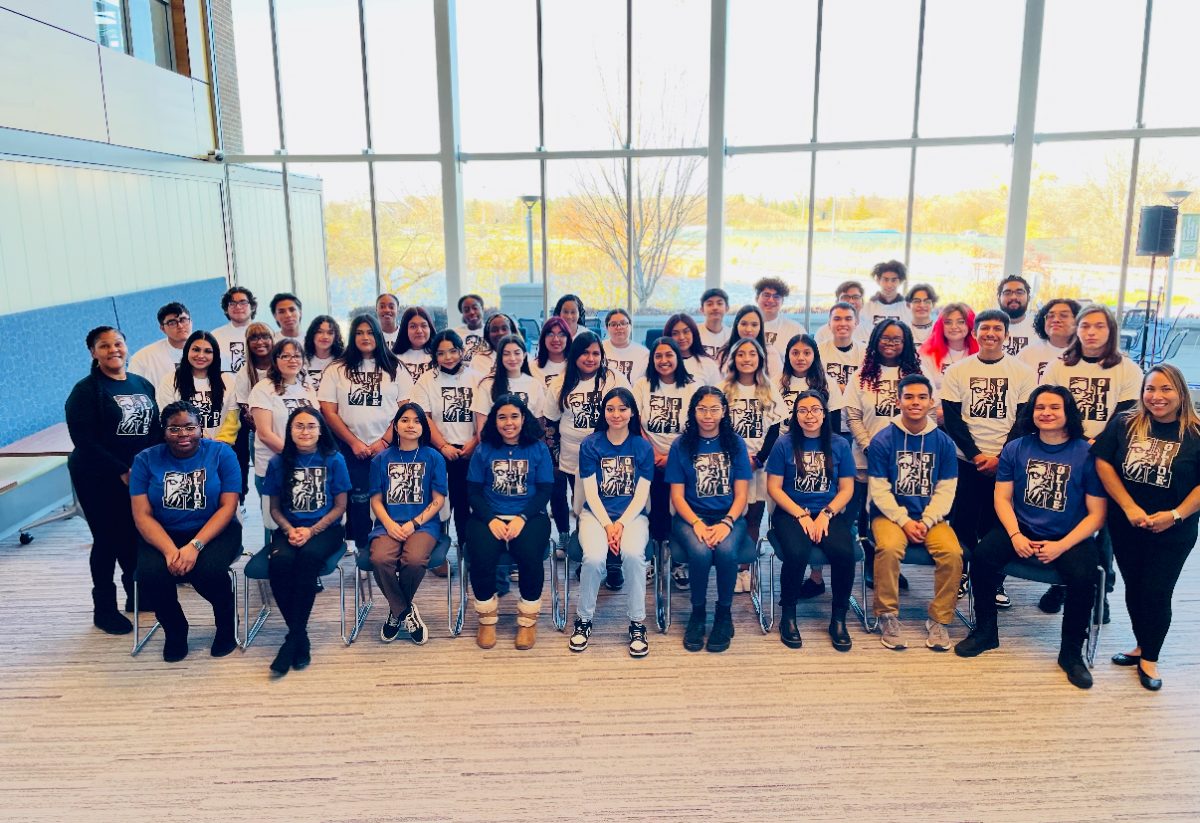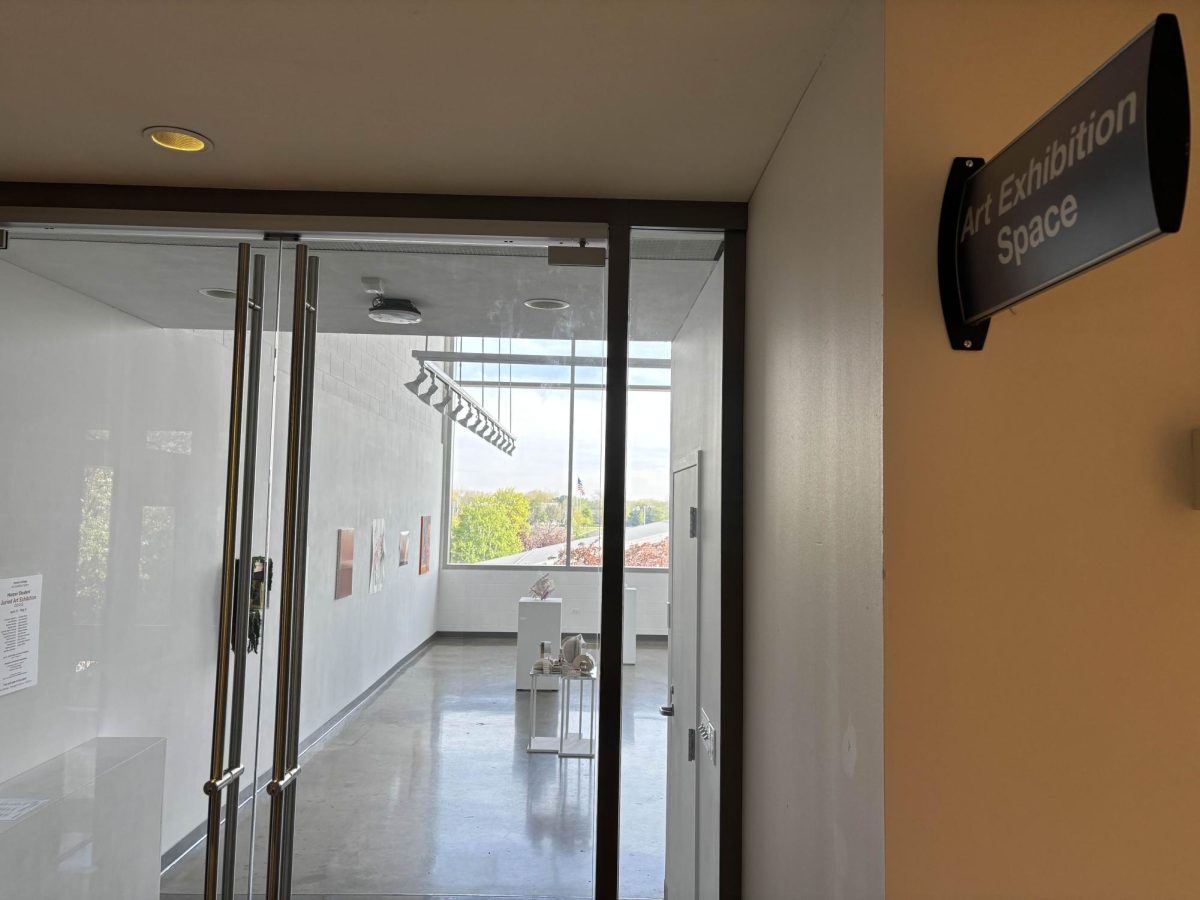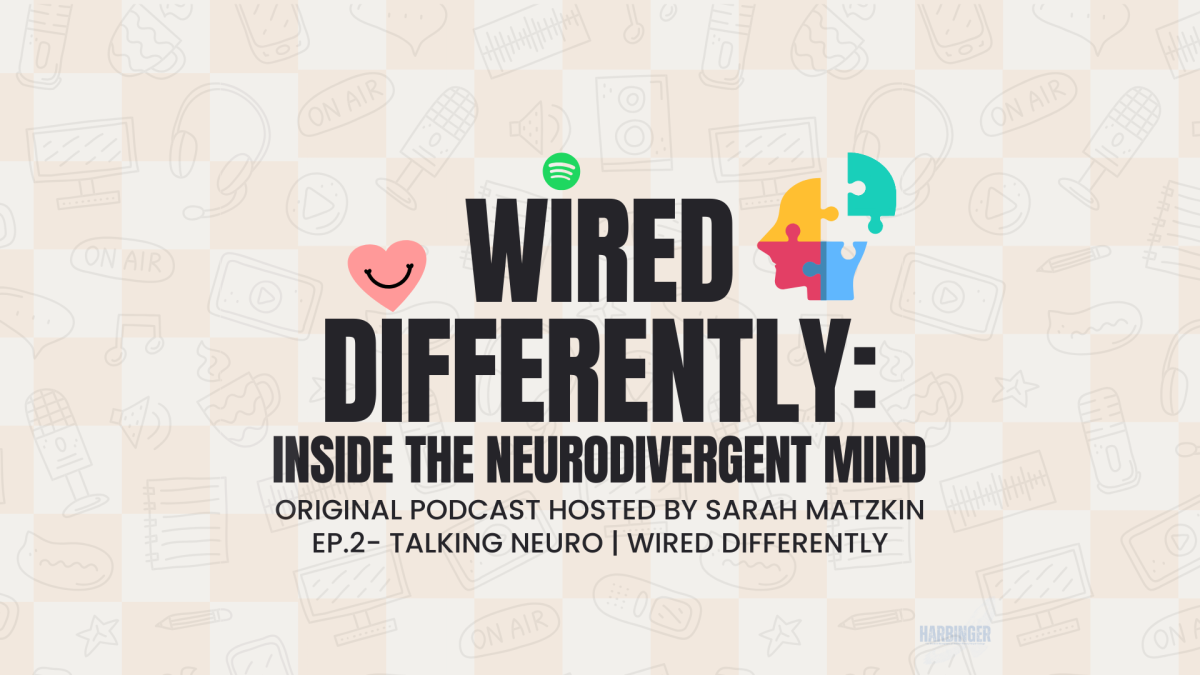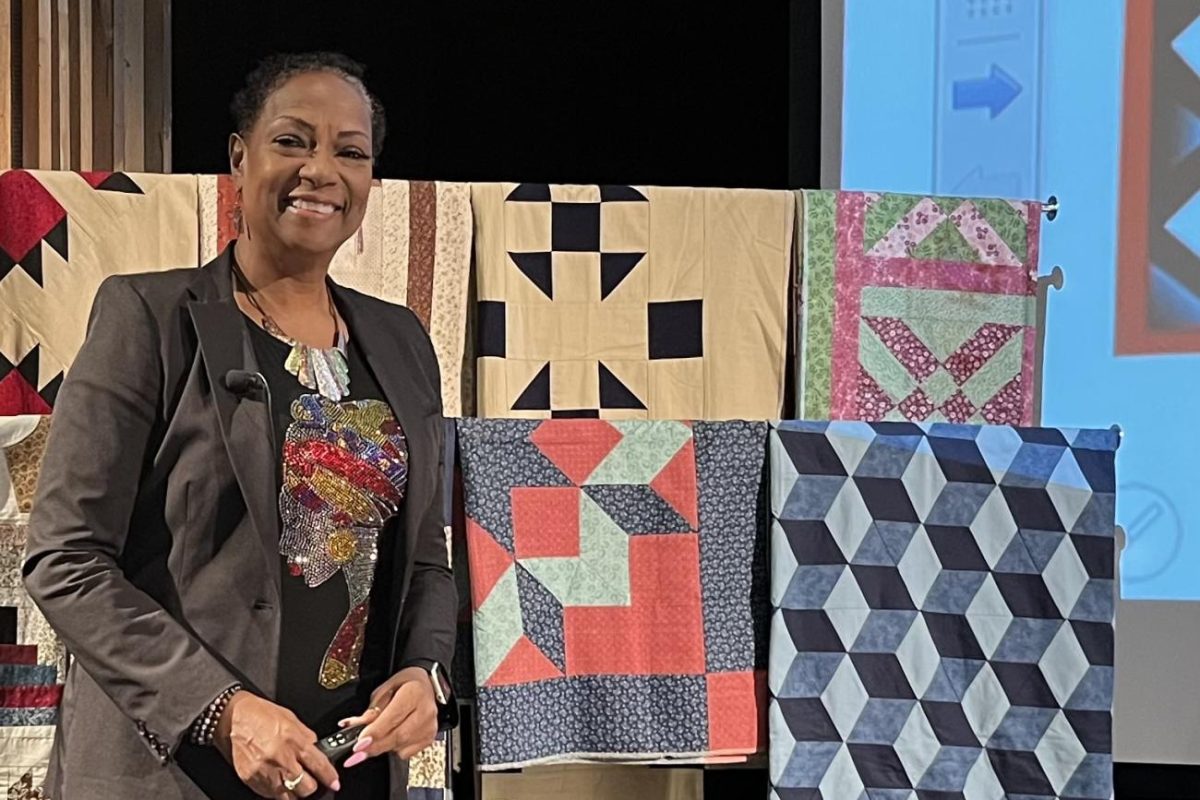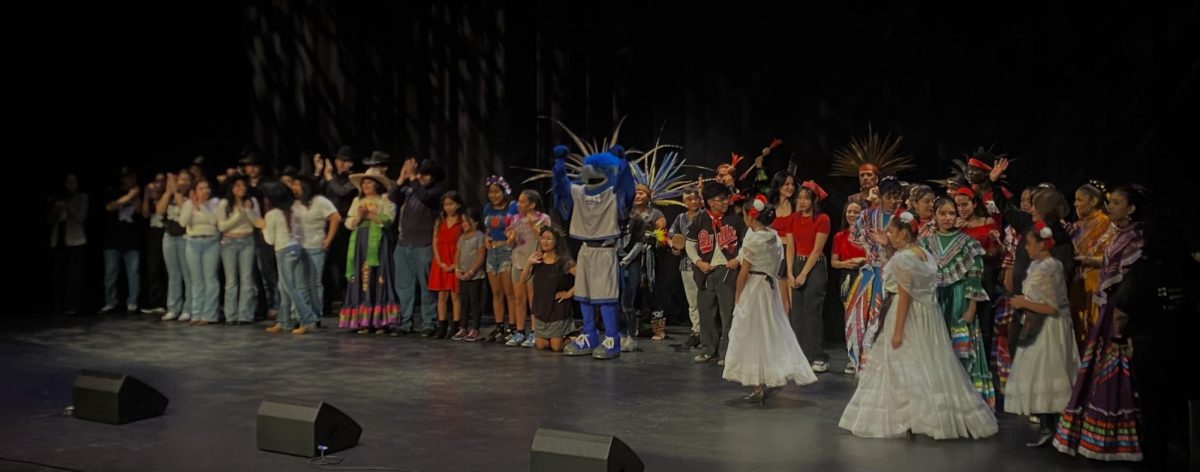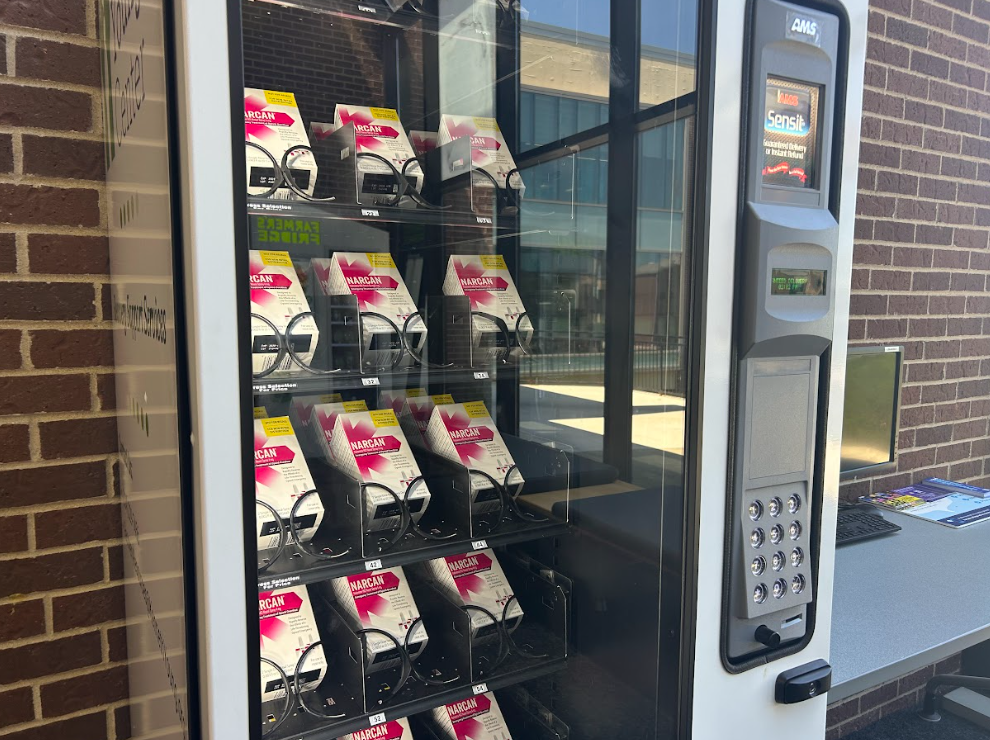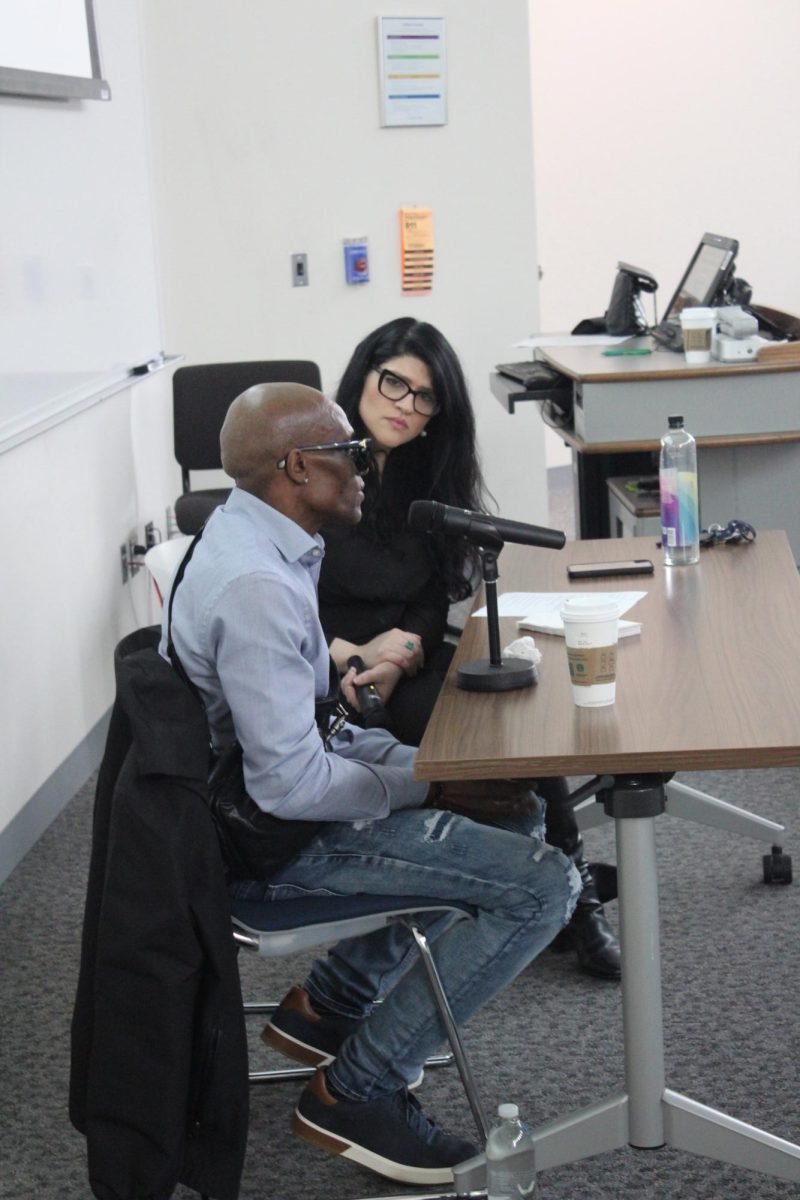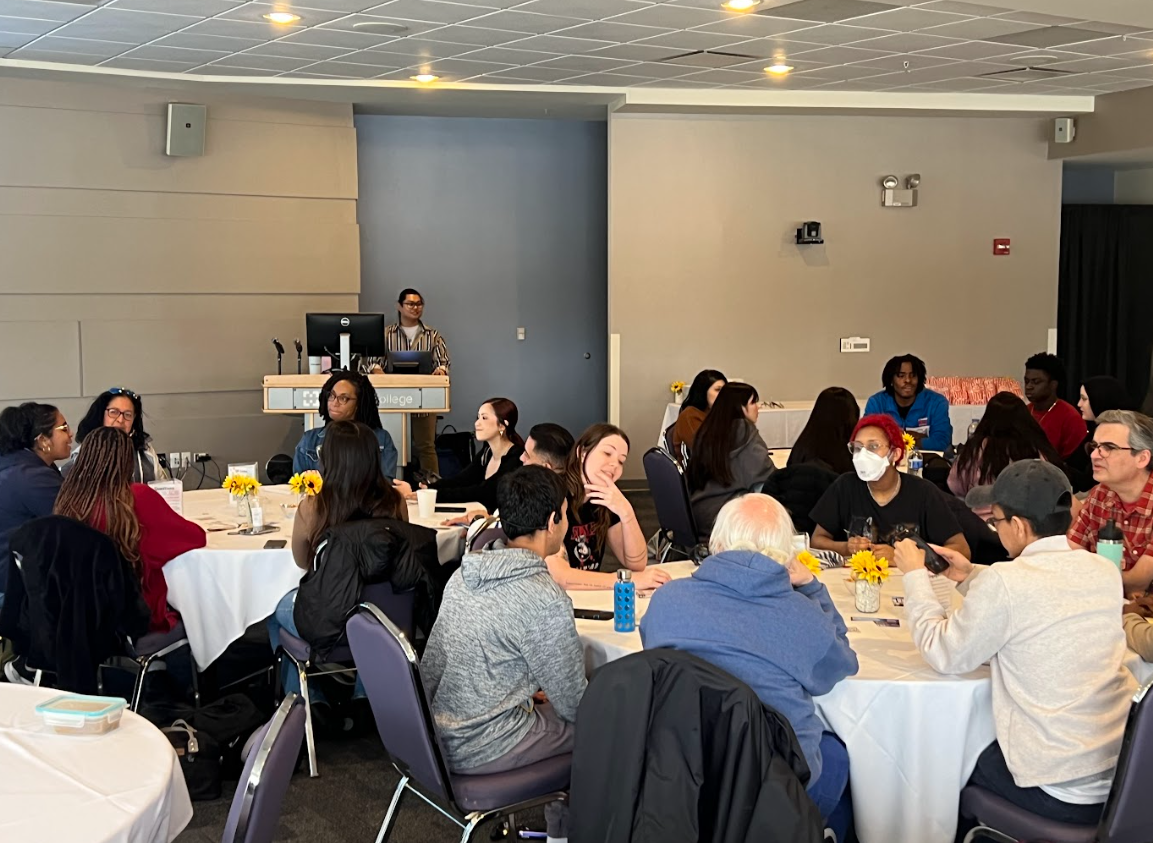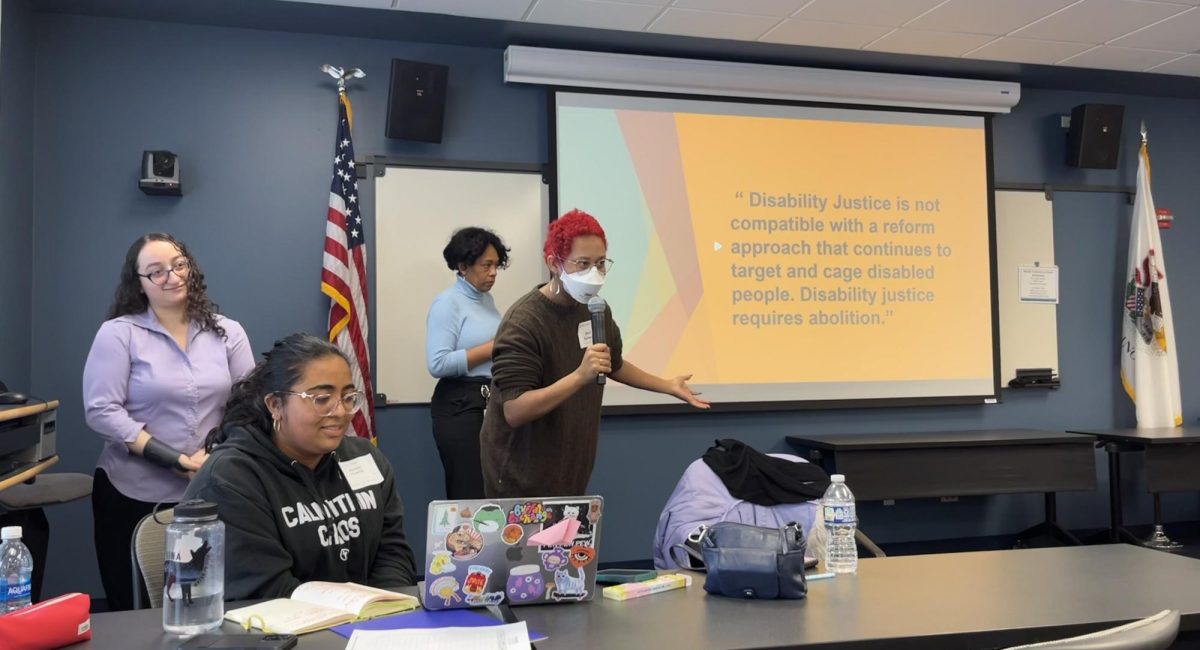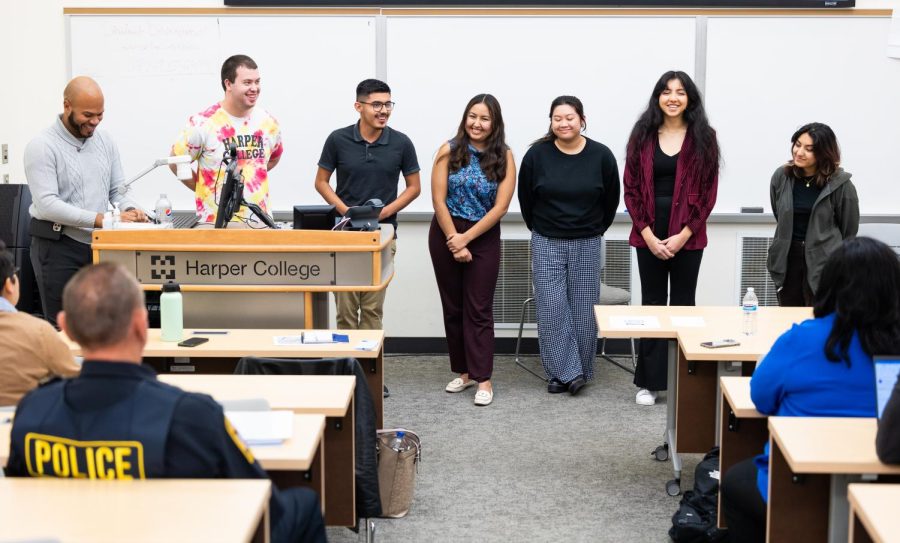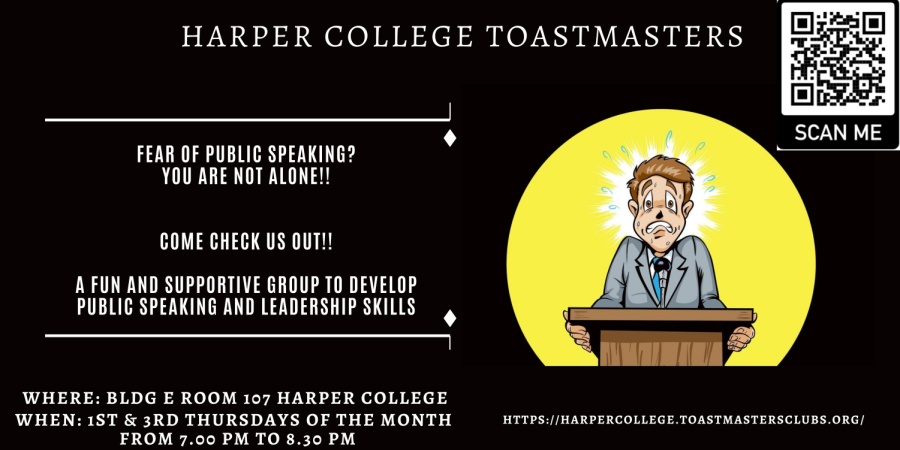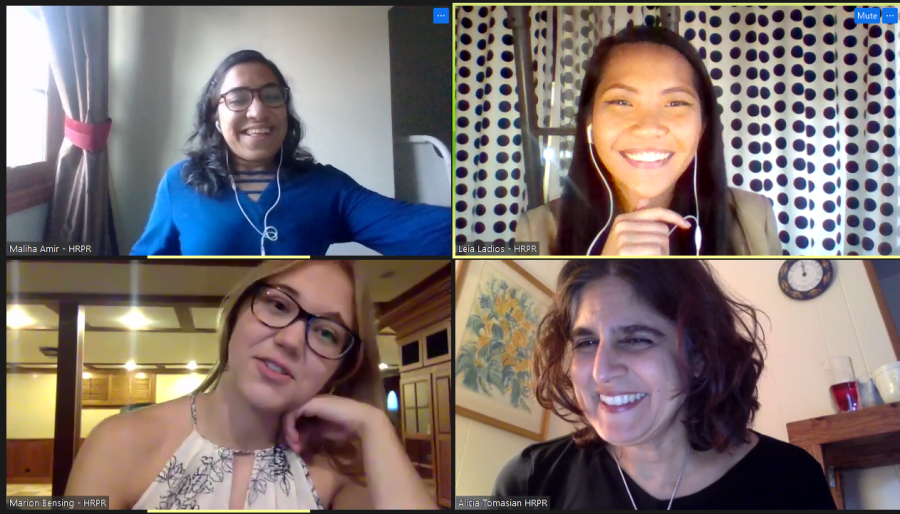GLIDE (Guiding Learners to Intentionally Develop Efficacy) held its final event on Friday, May 2nd, 2025, to celebrate its students’ academic achievements. As the Fall 2025 semester approaches, GLIDE announced it will not return.
Launched as a pilot program at Harper College in 2022, GLIDE served as a peer-to-peer mentoring initiative supporting Latinx and Black students in navigating college. The program pairs incoming students with mentors who offer guidance to the mentees.
Led by coordinators for Student Diversity Initiatives at Harper, Esmeralda Guerrero Lopez and Monica Shirley, the program aimed to increase graduation rates and retention for students from historically underrepresented communities.
Freshman Jesus Vences Sanchez, who planned to return as a mentor next semester, learned that the program would end after speaking with Guerrero Lopez.
“She [Guerrero Lopez] tells me GLIDE is not gonna continue this year,” Vences Sanchez recalls. “So I was sad about it, obviously, because I wanna experience both being a mentee and a mentor.”
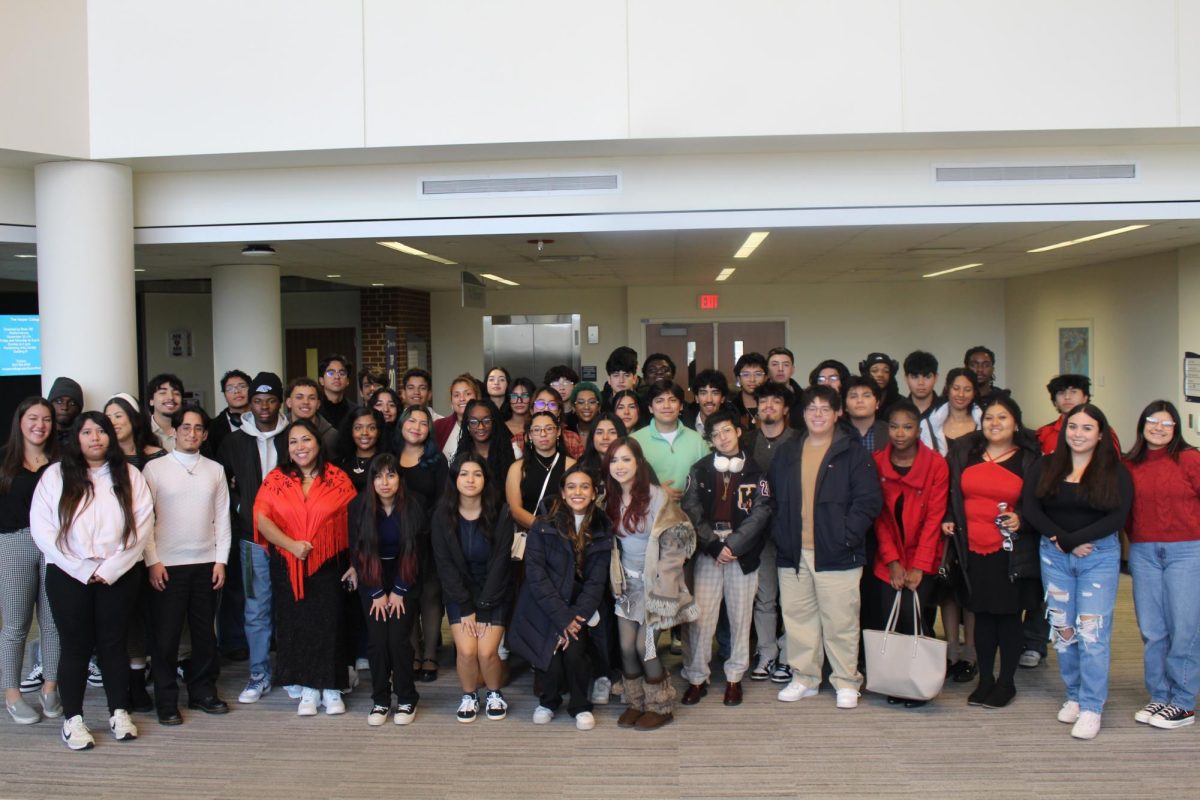
The announcement sparked confusion among students. Some speculated that the change is tied to the national political climate surrounding DEI (Diversity, Equity, and Inclusion) and ongoing institutional changes, such as the dissolution of the U.S. Department of Education.
Adekunbi Aransiola, a freshman recently elected as a student trustee for the upcoming semester, voiced similar concerns.
“GLIDE isn’t coming back. That’s with the things that are happening in our government right now with DEI. It’s kind of a hot-button issue right now,” Aransiola says.
However, Shirley and Guererro Lopez shot the rumors down and clarified that the decision is not politically motivated.
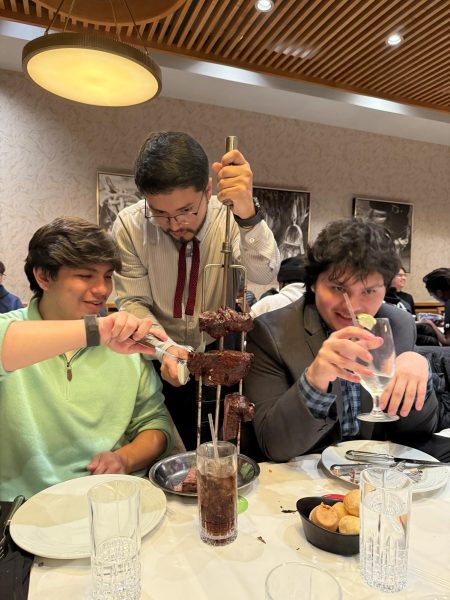
“It’s not driven by that,” Shirley says. “You had a lot of programs that were servicing at max 200 with OMD (One Million Degrees), ARC (Advanced Retention through Connected Advising), and smaller numbers at first, and then they scaled up. So these are what they consider boutiques, smaller numbers,” Guerrero Lopez added. “They’re looking to create something that would reach more students using a lot of those components.”
GLIDE was one of several “boutique” programs designed to serve specific student populations. While these targeted efforts are impactful, Harper officials now seek to consolidate and redesign them into larger, more inclusive initiatives with broader reach.
Both coordinators participated in meetings with Harper officials to discuss how boutique programs like GLIDE will be restructured for Fall 2025. While they didn’t provide specifics, the coordinators want to assure students that more information will be shared once it becomes available.
“We don’t want a lack of transparency,” Shirley emphasizes. “Things have to be approved by administrators and by the board. So it’s another layer outside of Harper that impacts what happens.”
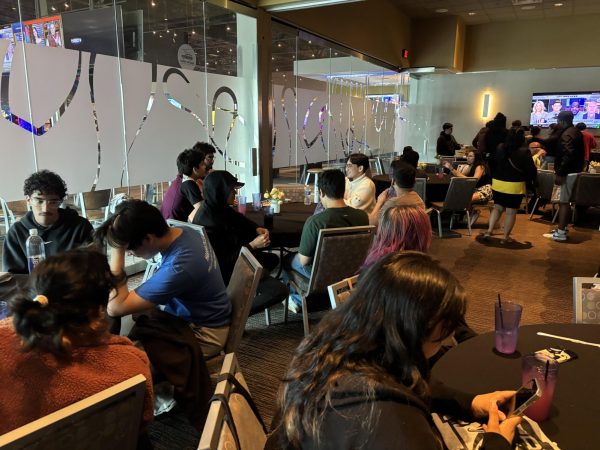
Throughout its run, GLIDE organized excursions to downtown Chicago, giving students opportunities to experience shows and restaurants they may not visit. “Moulin Rouge” was a favorite among participants, including Vences Sanchez.
When the program launched in 2022, it included 25 mentees and 5 mentors. As the program grew, it expanded to 40 mentees and 10 mentors.
“Esmeralda and I, when we are hired in these positions, one of our charges is to create a mentorship program for incoming Black and Latinx students, because that is where the biggest gaps in graduation, retention, and persistence exist,” Shirley states. “So we come in knowing we need to build this program.”
Zale Holmes, a sophomore transferring to the University of Illinois-Chicago to study in the STEM field, served as a mentor and describes GLIDE as a rewarding experience.
“I really enjoy getting to know my mentees. Forming those connections with them has been really fun. I just really like meeting people, and I like helping people,” Holmes said. “I met a lot of really cool new people. I’m still friends with them,” Aransiola added.
While students expressed gratitude for the program, they also offered suggestions for improvement for future programs. Holmes noted that mentors only receive one day of training and recommends adding more.
“We did have a training period, which I really appreciated because not everyone knows how to mentor,” Holmes notes. “I kinda wish that we had maybe two days.”
Aransiola suggested rotating mentors and mentees to increase interaction to create a more diverse community.
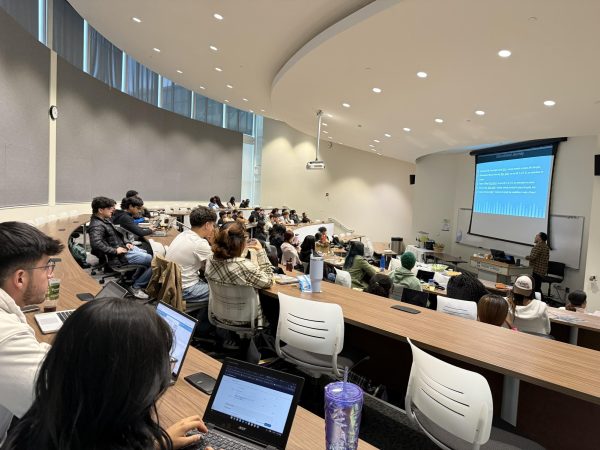
“There’s one mentor, and you stick with that person for the entire year,” Aransiola points out. “I think something I would’ve liked to see is switching the group of mentees so you get to connect with more people.”
Despite GLIDE’s conclusion, students expressed a strong interest in participating in future programs that maintain its mission.
“If these programs are all going to be merging and they’re creating a new one out of that, it’s really important to me to preserve the focus on serving underrepresented students,” Holmes says. “I really want that to be something that continues.”
Both GLIDE coordinators expressed their appreciation for the students who participated in the GLIDE program and offered words of encouragement to new students coming to Harper.
“For all the students who are part of GLIDE, you made an impact. We’ll be here for you always,” Guerrero Lopez said. “And to any incoming student: know that support is here for you, community is here for you at Harper, and we’re committed to making sure you have that kind of experience.”
Shirley shared a similar sentiment.
“I would just say thank you to the students,” Shirley said. “Thank you for participating, thank you for letting us in, and keep shining.”
For more news, subcribe to our mailing list and follow us on Instagram, @harbstudentnews.


